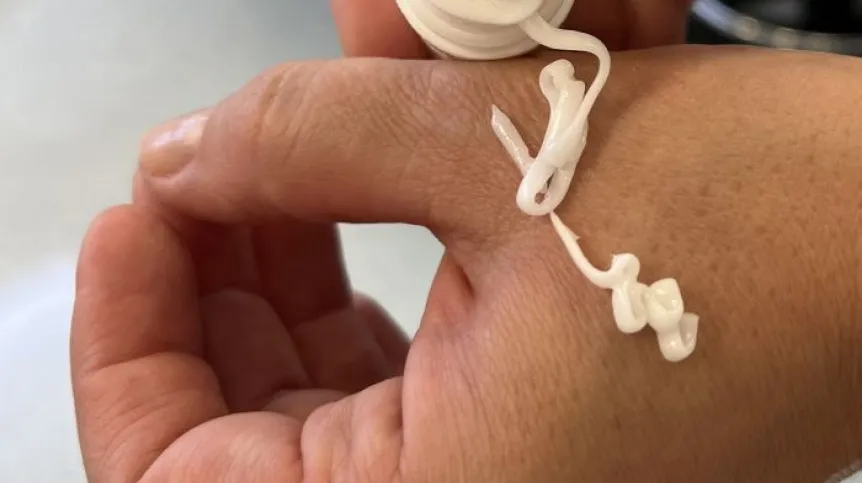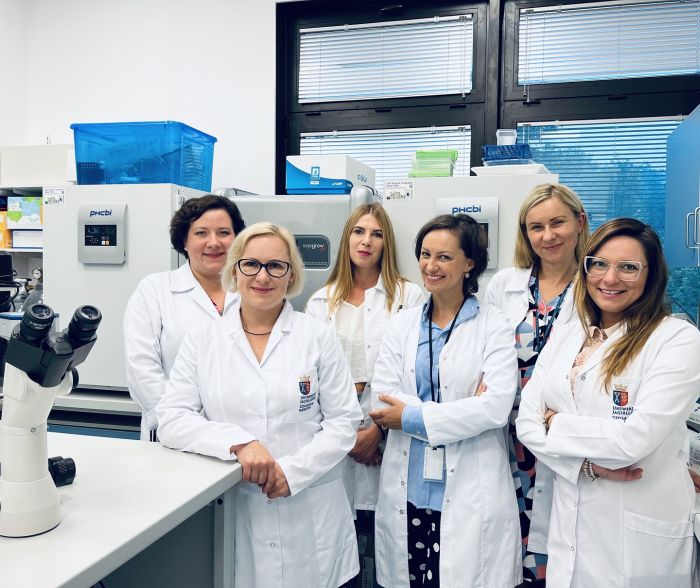
Scientists from the Jagiellonian University Medical College have developed a chemical compound that may become an important part of skin discoloration therapy because it effectively inhibits the natural process of melanin production in cells.
According to the researchers, applying the newly discovered substance to hyperpigmented skin areas may effectively reduce the discoloration of skin.
The creation of the new chemical compound is a result of many years of efforts by the team led by Dr. Agnieszka Gunia-Krzyżak from the Faculty of Pharmacy of the Jagiellonian University Medical College. The team has studied various types of compounds, focusing on their potential of supporting skin hyperpigmentation treatment. One of those substances was cinnamic acid, a compound naturally present in some plants, including the popular spice to which it owes its name.
The scientists have obtained one particular derivative of this acid which, as they have proven, exhibits the desired properties, effectively inhibiting processes of melanin production by skin cells. And that was the purpose of the search.
Now the university is looking for an industry partner that will enable the final stage of research and introduce a new cosmetic product to the market.
Controlled melanin synthesis helps eliminate discolorations
Melanin is a natural pigment whose main role is to protect the body against harmful effects of ultraviolet radiation. It is produced by melanocytes, special cells found in the deeper layer of epidermis. The process is catalysed by enzymes, a particularly important of which is tyrosinase.
'The compound we have discovered effectively inhibits the activity of this enzyme, and that means that we have achieved the possibility of controlling the amount of melanin in those areas of skin to which it is directly applied,’ says Dr. Gunia-Krzyżak.
She adds that the idea of treatment based on her team's discovery is very simple: using the cosmetic containing the substance in the place of skin hyperpigmentation significantly reduces melanin production, which subsequently leads to the brightening of epidermis and reduction of the discoloration.
Cosmetics for discoloration
The scientists have conducted a number of successful tests required to introduce a new cosmetic product to the market. The in-vitro experiments carried out so far confirmed the safety of the selected compound as well as its high bioaccessibility.
'In addition to the safety and activity of the cinnamic acid derivative, it is important that the substance easily passes through the epidermis and, consequently, can effectively work inside melanocytes, inhibiting the activity of tyrosinase. Besides, unlike other substances hitherto used in skin hyperpigmentation treatment, the compound shows a high level of physicochemical stability, also in water solutions and emulsions,’ says Dr. Justyna Popiół, who also took part in the research project.
The tests carried out so far have also confirmed that the new compound does not exhibit cytotoxic, mutagenic, or genotoxic activities. A model of reconstructed human epidermis was used in tests to verify its effectiveness and safety. Such a model is based on the epidermis obtained from human keratinocytes. Its morphological and physiological properties resemble those of a natural tissue. Tests on this tissue, grown specially for that purpose, effectively replace animal experimentation and are used by a number of cosmetics producers all over the world. The successful completion of such experiments precedes the final tests involving humans.

The team from the Faculty of Pharmacy has developed a special cosmetic formulation based on oil-in-water emulsion. The results have indicated high melanogenesis inhibition properties, lack of irritating effects, and optimal bioaccessibility.
Market potential
'Due to the fact that the compound successfully passes through the corneal layer of the epidermis, reaching the living layers of skin tissue, and its properties have been confirmed through subsequent analysis, the discovery must be considered very promising,’ says Dr. Gabriela Konopka-Cupiał, Director of the CITTRU Centre for Technology Transfer.
She adds that before the product can be marketed, the final stage of research has to be completed, that is, the substance has to be tested on selected groups of people.
'For this stage, we are looking for a business partner interested in enhancing their offer of cosmetic products with this kind of compound. We would like to collaborate with such a partner based on an issued licence, whereas our research team is fully ready to provide relevant expertise to the external party responsible for the introduction of the compound to the market,’ says Konopka-Cupiał.
The intellectual property rights related to the newly developed compound are protected both in Poland and abroad.
Skin discoloration - not only an aesthetic problem
Skin discoloration affects millions of people around the world. It is not only a serious aesthetic problem, but also a psychological one. It can lead to lower self-esteem, negatively affect mood, and in some cases worsen the symptoms of depression.
The causes of discoloration are very complex, but the most common ones include excessive exposure to UV radiation, inflammation and hormonal disorders. They lead to melanin imbalance (or its deposition) in the skin tissue, with discoloration as a direct consequence.
Currently, there is no remedy that can completely eliminate discoloration. Lasers, cosmetics that can limit the formation of discolorations and reduce existing changes, peels that accelerate the removal of dead cells from the outer layers of the epidermis, and antioxidants that block melanin synthesis are used.
Scientists have high hopes for inventing new ways to effectively control the amount of melanin in skin tissue. Teams all over the world are looking for substances that could effectively inhibit the production of this pigment, preferably via local and external administration, i.e. after applying the preparation to areas where the skin is darker.
'Side effects and insufficient potency of the compounds are challenges that the cosmetics industry has not yet been able to tackle in the fight against skin discoloration,’ the scientists say. That is why they took up this topic themselves. They explain that they were most interested in finding compounds that had not been used as melanogenesis inhibitors, and that could be used as components in cosmetic products. 'Based on the research conducted so far, it can be said that this goal has been achieved,’ they add.
PAP - Science in Poland, Katarzyna Czechowicz
kap/ agt/
tr. RL













